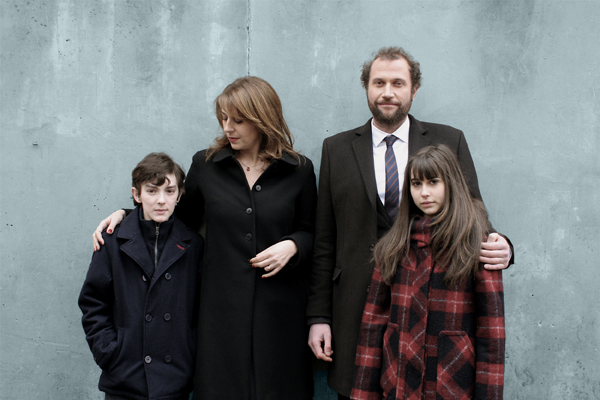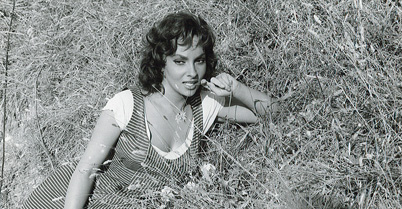|
Reviews of Recent Independent, Foreign, & Documentary Films in Theaters and DVD/Home Video

Rendez-Vous with French Cinema 2010 Four of the seven César nominees for best film can be seen at this year’s Rendez-Vous with French Cinema. With only one nomination, it’s a shame that I’m Glad that My Mother Is Still Alive, directed by the father-and-son team of Claude and Nathan Miller, didn’t receive more recognition. It was one of the strongest films at last year’s Venice Film Festival, in terms of impact and the economy of its script. Vincent Rottiers, nominated for best male newcomer, is the acting find of this year’s edition. He also appears in another very good film that left the Césars empty-handed, In the Beginning, which was at least nominated for the top prize. In Mother, Rottiers reeks of neediness as a 19-year-old searching for his birth mother. She gave him up for adoption when he was toddler, and she has since married and has another son. When he comes knocking on her door, she half-heartedly asks him in. Their thorny relationship remains ambiguous, yet specific. In almost every scene some sort of revelation detonates, either in the form of an overture or a jab on the part of either the son or mother. In Xavier Giannoli’s In the Beginning, Rottiers plays a much different angry young man, one with much more confidence. Tall, slightly graying, and still handsome, Philippe Miller (François Cluzet) looks the part of a civil engineer. He would command respect anywhere, especially in a middle-of-nowhere town that has sky-high unemployment, due to the suspension of a multimillion-euro freeway project. He’s like The Rainmaker’s Starbuck, but instead of promising a bountiful crop, he pledges that work will resume. He doesn’t have to convince workers that he’s the contact man for the corporation overseeing the project. As more and more believe that the highway project will restart, the exploitation of the hopes of those who have nothing to lose produces the queasiest feeling outside of a horror movie. Bribery, bluffing, and blackmail ensue. Rottiers plays the one townie who’s immediately onto the conman. And for those who need their Gérard Depardieu fix, he plays a thuggish supporting role here. Another best film nominee, the cold-hearted thriller Rapt is Ruthless People without an ounce of irony (or humor). Living the life of luxury, master of the universe (Ivan Attal) has a beautiful family, a pretty mistress, and leads a double life as a profligate gambler—until he’s kidnapped and held for ransom for 50 million euros. First his dignity vanishes and then part of a finger is severed. (I squirm just remembering it.) Director Lucas Belvaux keeps the tension on a low, steady simmer. His tersely written what-you-see-is-what-you-get thriller is also a corrosive and efficient snapshot of today’s backlash against financial privilege. If Belvaux’s name doesn’t ring a bell, Netflix his The Trilogy, for smart genre filmmaking.)
Even the French have their variation of The Blind Side—Farewell, nominated over superior films like André Téchiné’s The Girl on the Train. Back in 2002, Rendez-Vous presented director Christian Clarion’s debut film, the understated and moving The Girl from Paris. This year, the festival opens with his too-laid-back Cold War thriller, featuring a low-key escape from East to West. Guillaume Canet stars as a French executive who becomes a reluctant amateur spy for the French secret service and the conduit for a Soviet colonel to pass along unprecedented top secrets. The scenes where the two meet to pass along information have no sense of urgency or danger. Not nearly as many films stand out like last year’s high water mark, which included The Beaches of Agnès, Séraphine, and two films that unfortunately haven’t been released in the U.S., the gangster epic Mesrine and the sharp boulevard comedy Change of Plans. The Hedgehog, though, has sleeper potential. Based on a bestseller, it earns every ounce of its sentimentality, aided by the understated performance of juvenile actress Garance Le Gullermic as Paloma. Director Mona Achache doesn’t force this character on you, which is a smart move considering the methodical girl is an 11-year-old brainiac already jaded with ennui, so much so that she wants to kill herself on her 12th birthday. And she wants to go out with a bang—leaving behind a video diary of her life. She records her mother, blissed-out on antidepressants and champagne; her self-involved older sister; and her workaholic politico father. Her lens also catches her building’s withdrawn and frumpy concierge (Josiane Balasko)—the obvious metaphor of the title, prickly and protective. Their relationship’s quite moving, though the otherwise lovely score by Gabriel Yared is overused. The film offers two of the series’ best female roles, which are unusually in short supply. This is the rare Rendez-Vous where Catherine Deneuve hasn’t glowed (or glowered) on screen.
While The Hedgehog deals with pathos, The Wolberg Family tries to keep emotions buttoned up. To fully describe the goings-on would make this sensitive family drama sound over the top—adultery, illness, decades-old resentments—yet the intuitive cast saves it from melodrama, and perhaps director Axelle Ropert realizes this, too. She films her script simply like a play, focusing on her actors just sitting and talking, making the center of attention all about this Jewish family busting at the seams. There’s a lot of drama for a little movie of only 80 minutes. One twisted comedy is like a rowdy, rude houseguest that you’ll end up remembering over the well-behaved. Such is the case with The King of Escape, with its chubby, gay, and narcissistic sad sack. At 43, tractor salesman Ludovic (Armand Lacourtade) looks like a depressed version of actor Mark Addy. He’s tired of the roadside sexual encounters in his small town—the cause of all this randy daytime behavior in this provincial backwater is doo-root, a plant grown in the woods. Giving monogamy a try, he takes advantage of beautiful 16-year-old Sonia (Hafsia Herzi), who rebels against her staunchly protective dad by running off with Ludovic, fully knowing which way he swings. (He usually goes for married men.) Director Alain Guiraudie never lets you forget that they’re the unlikeliest of couples. He pushes many buttons with the frankest sex scenes in this year’s program, but they’re more eew than oh. In comparison, many of the other films are staid, almost too respectable. A small-town working-class stiff, Jean (Vincent Lindon, again), falls in love with his young son’s schoolmarmish teacher, Mademoiselle Chambon (actress Sandrine Kiberlain, nominated for best actress). This drama of restraint is completely recognizable and not surprising. Most of the film’s scenes are of the characters’ daily (and drab) everyday lives: the teacher grading papers, a depressed Jean slouched at a bar downing a beer. An attentive husband and father, he means well (Jean even accompanies his frail dad shopping for a coffin), until he finally snaps. But I’d rather have a dose of doo-root. The festival doesn’t only offer character-driven art-house fare. The horny and pimply teenager comedy The French Kissers, which surprisingly won the César for best first film, is not as funny as its American counterparts or as perceptive as other coming-of-agers, which the French have mastered. And if you’ve seen 2006’s international spy spoof OSS 117: Cairo Nest of Spies, then its sequel OSS: Lost in Rio will feel exactly the same, except set in a different continent. This time, sexist, racist, and anti-Semitic special agent OSS 117 hunts down a Nazi in 1967 Rio (which means some T & A). What makes the comedy unusual is Jean Dujardin, a leading man/hunk playing a buffoon in love with himself. However, weighed down by a script with a thin story and a repetitive sense of humor, he can carry the film only so far.
Those who
want to seek out a star of tomorrow will have to flog through the
intermittently suspenseful French resistance drama The Army of Crime
to see
Grégoire Leprince-Tinguet as a Jewish communist and anti-Nazi
activist. Like in his earlier film Love Songs, Leprince-Tinguet
has “it,” a natural vulnerability. He perks up all of his scenes, no
matter if they’re just exposition. Kent Turner
|




